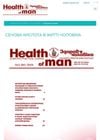37 citations,
May 2018 in “Frontiers in physiology” Certain RNA molecules are important for the development of wool follicles in sheep.
34 citations,
July 2020 in “Dermatologic Therapy” Searches for acne, hair loss, and eczema increased during COVID-19, while searches for other skin issues decreased.
24 citations,
April 2021 in “BMC women's health” High BMI worsens hair growth in women with PCOS.
 15 citations,
September 2021 in “Archives of Plastic Surgery”
15 citations,
September 2021 in “Archives of Plastic Surgery” The document concludes that facial feminization surgery improves psychological well-being and social acceptance for transgender individuals.
15 citations,
November 2020 in “Physiological reports” Sox6 is important in heart and kidney health, affecting diseases like diabetes, heart disease, and high blood pressure.
 11 citations,
November 2017 in “Hong Kong Medical Journal”
11 citations,
November 2017 in “Hong Kong Medical Journal” Polycystic ovary syndrome increases the risk of diabetes, heart disease, and endometrial cancer, and requires early treatment to manage these risks.
9 citations,
March 2009 in “The journal of investigative dermatology/Journal of investigative dermatology” Ectodysplasin signaling is crucial for skin appendage development, requiring specific doses and durations.
 8 citations,
June 2022 in “International Journal of Molecular Sciences”
8 citations,
June 2022 in “International Journal of Molecular Sciences” Tiny particles called extracellular vesicles show promise for skin improvement and anti-aging in facial care but face challenges like low production and lack of research.
 6 citations,
August 2023 in “Fertility and Sterility”
6 citations,
August 2023 in “Fertility and Sterility” The 2023 guideline for PCOS suggests using updated diagnostic criteria, assessing related health risks, and recommends lifestyle changes and specific treatments for symptoms and fertility issues.
 6 citations,
August 2023 in “European journal of endocrinology”
6 citations,
August 2023 in “European journal of endocrinology” The 2023 guideline advises a detailed approach for PCOS, focusing on early detection, lifestyle and medical treatments, and managing health risks.
 4 citations,
February 2022 in “Nutrients”
4 citations,
February 2022 in “Nutrients” Korean Red Ginseng saponins may protect skin from inflammation and darkening caused by air pollution.
4 citations,
June 2020 in “Cosmetics” Broussonetia papyrifera extract helps hair growth by regulating specific proteins.
 3 citations,
April 2023 in “Frontiers in Pharmacology”
3 citations,
April 2023 in “Frontiers in Pharmacology” ATP-sensitive K+ channel subunits, particularly Sur2A, play a significant role in various cancers.
3 citations,
October 2012 in “DOAJ (DOAJ: Directory of Open Access Journals)” Pemetrexed with cisplatin is safer and more effective than gemcitabine with cisplatin for advanced lung cancer.
 2 citations,
February 2024 in “Journal of the European Academy of Dermatology and Venereology”
2 citations,
February 2024 in “Journal of the European Academy of Dermatology and Venereology” The study created a 27-item measure to assess the impact of skin diseases.
2 citations,
April 2022 in “Sleep and Breathing” 2 citations,
February 2021 in “Case reports in dermatological medicine” The new topical botanical formulation significantly regrew hair in all five patients without side effects.
 1 citations,
April 2023 in “Biomolecules”
1 citations,
April 2023 in “Biomolecules” Fermented papaya and mangosteen in hair care products helped prevent hair loss and improve hair thickness.
 1 citations,
April 2022 in “Annals Academy of Medicine Singapore”
1 citations,
April 2022 in “Annals Academy of Medicine Singapore” PCOS care in Singapore can be bettered by refining referral systems, standardizing diagnosis and treatment, enhancing complication screening, and offering educational resources for clinicians.
1 citations,
August 2021 in “Medical Science Monitor” Male and female hair loss have different genetic causes.
1 citations,
April 2015 in “Nasza Dermatologia Online” Dermatologists should be involved in the care of hematology patients due to common skin issues.

Intermittent fasting slows hair growth by damaging hair follicle cells.
 September 2024 in “Health of Man”
September 2024 in “Health of Man” High uric acid can cause health issues, so managing it with lifestyle changes is important.
 September 2024 in “Frontiers in Genetics”
September 2024 in “Frontiers in Genetics” A specific genetic marker is linked to male pattern baldness in Han Chinese men.
Certain genes may influence hair loss differently in men and women.

Natural compounds from Chinese herbs may safely promote hair growth and treat common hair loss.
KRTAP6 genes affect wool quality in sheep.
 September 2023 in “Current opinion in microbiology”
September 2023 in “Current opinion in microbiology” Certain fungi protect skin health, but changes can allow harmful fungi to cause serious infections, needing more research for treatment and control.
 September 2023 in “The Journal of clinical endocrinology and metabolism”
September 2023 in “The Journal of clinical endocrinology and metabolism” Genetic risk for PCOS can affect children's growth, metabolism, and development from early life into adulthood.
 May 2023 in “Aesthetic Plastic Surgery”
May 2023 in “Aesthetic Plastic Surgery” The document concludes that there are various surgical techniques for hair restoration, their success depends on the surgeon's skill, patient's health, and quality of donor hair, and they can potentially improve the mental well-being of those with hair loss.
















